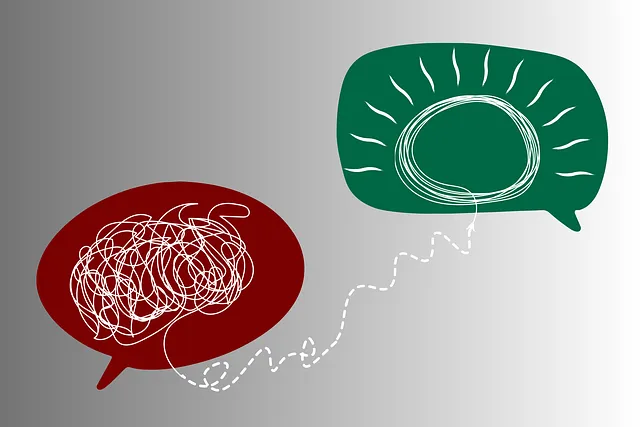Littleton Kaiser Permanente mental health services offers personalized crisis intervention strategies, focusing on stabilization, empowerment, and long-term resilience through cognitive-behavioral therapy, self-care practices, and open communication. Their tailored solutions, expert professionals, and continuous improvement through training sessions equip them to address growing community needs effectively, contributing to overall well-being.
In times of crisis, effective intervention strategies are vital to ensuring positive outcomes. This article explores essential guidance on crisis intervention, highlighting the critical role of organizations like Littleton Kaiser Permanente in providing exceptional mental health services. We delve into key strategies proven to de-escalate situations and offer best practices for continuous improvement in supportive care. By understanding these principles, professionals can effectively navigate crises, fostering resilient communities and enhancing well-being. Discover how Littleton Kaiser Permanente’s approach revolutionizes mental health support.
- Understanding Crisis Intervention: A Brief Overview
- The Role of Littleton Kaiser Permanente in Mental Health Services
- Key Strategies for Effective Crisis Intervention
- Implementation and Continuous Improvement: Best Practices for Supportive Care
Understanding Crisis Intervention: A Brief Overview

Crisis intervention strategies are vital tools for professionals aiming to provide immediate and effective support during times of intense emotional distress. At Littleton Kaiser Permanente mental health services, we recognize that every individual’s journey is unique, and our approach to crisis intervention reflects this diversity. It involves a structured yet flexible process designed to stabilize individuals and help them regain control over their lives.
This process begins with assessment, where trained professionals swiftly identify the nature of the crisis and any underlying factors contributing to it. By fostering open communication, they encourage clients to share their experiences, fears, and hopes—a crucial step in building trust and empowering individuals to develop inner strength. Emotional well-being promotion techniques, such as cognitive-behavioral strategies, are often employed to help individuals manage their emotions and gain perspective on their challenges. Additionally, self-care practices are integrated into this process, acknowledging that promoting resilience and long-term mental health requires a holistic approach that nurtures both the mind and body.
The Role of Littleton Kaiser Permanente in Mental Health Services

Littleton Kaiser Permanente plays a pivotal role in providing mental health services to its community, offering a range of programs and resources tailored to address various psychological needs. They recognize the growing importance of mental health awareness and have positioned themselves as a leading organization in this domain. Through dedicated facilities and a team of expert professionals, they offer comprehensive care for individuals experiencing emotional distress or mental health disorders.
The organization places significant emphasis on innovative approaches, including stress management workshops designed to empower individuals with coping mechanisms and empathy building strategies that foster supportive environments. These initiatives not only cater to the immediate needs of patients but also contribute to a broader goal of promoting overall well-being within the community.
Key Strategies for Effective Crisis Intervention

In the face of a crisis, effective intervention strategies are paramount to guiding individuals toward stability and recovery. One renowned model that offers valuable insights is the Crisis Intervention Model, developed by specialists at Littleton Kaiser Permanente’s mental health services. This approach emphasizes active listening, empathy, and validating the person’s emotions as foundational steps. Mental health professionals play a crucial role in creating a safe space, fostering open communication, and offering practical solutions tailored to the individual’s needs. By combining these techniques with an emphasis on self-care practices, practitioners can ensure they are equipped to handle diverse crises effectively.
Additionally, cultivating positive thinking and implementing robust risk management planning are essential components of successful crisis intervention. Encouraging individuals to adopt a positive mindset can enhance their resilience and coping mechanisms. Meanwhile, risk management planning for mental health professionals is vital to anticipate and mitigate potential risks during interventions, ensuring the safety and well-being of both clients and practitioners.
Implementation and Continuous Improvement: Best Practices for Supportive Care

Implementing crisis intervention strategies requires a structured approach, especially when it comes to supportive care. At Littleton Kaiser Permanente mental health services, we prioritize continuous improvement in this domain by fostering an environment that encourages open communication and active participation from both staff and clients. Regular training sessions on evidence-based practices, such as Emotional Regulation techniques, Mindfulness Meditation, and Self-Awareness Exercises, are conducted to ensure every individual involved is equipped with the necessary tools to handle crises effectively.
This proactive stance involves regularly reviewing and updating intervention protocols based on feedback from both parties. By creating a culture of continuous learning, we enhance the quality of care provided, ensuring that our strategies remain relevant and impactful in managing crises. This holistic approach not only benefits individual clients but also contributes to building a resilient community where emotional well-being is prioritized.
Crisis intervention plays a vital role in supporting individuals facing severe emotional or psychological distress. As highlighted by the expertise of Littleton Kaiser Permanente mental health services, effective strategies can significantly improve outcomes and enhance recovery. By implementing key techniques such as active listening, creating safe spaces, and providing immediate support, professionals can navigate complex situations with compassion and competence. Continuous improvement through best practices, like those shared for supportive care, ensures that crisis intervention remains a powerful tool in the mental health landscape.




